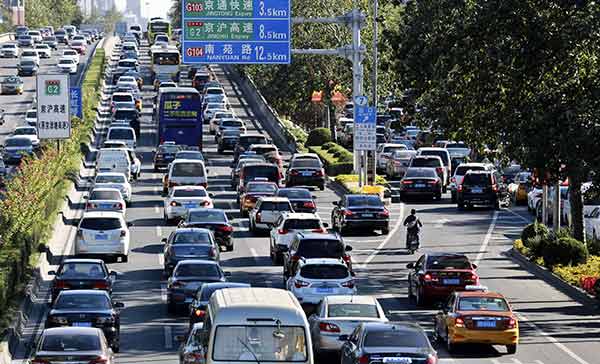 |
|
A traffic jam during peak hours in Beijing. The capital city currently has more than 5 million automobiles.[Photo by Feng Yongbin/China Daily] |
Under the State Council Action Plan for Air Pollution Control, Beijing should reduce the annual average fine particulate matter concentration to 60 micrograms per cubic meter by 2017.
As the official figure for 2015 was 80.6, a 6.2 percent drop from the previous year, reaching the 2017 goal is unlikely without a dramatic change.
Recent studies show motor vehicles are one of the main culprits for the city's air pollution, and the local authorities are reportedly pondering legislation aimed at reducing car use. Besides differentiated, higher parking fees, the probability seems high that all vehicles may be put off the road every other day throughout the heating season based on the last digit of their license plates.
Such an odd-even mechanism has already proven effective in producing blue sky days when applied on a temporary basis in the past few years. But its implementation has always been accompanied by large-scale suspension of industrial facilities in and around the city.
But, leaving aside to what extent car use contributes to the city's haze problem, the jurisprudential basis they have offered for such a measure is fundamentally problematic.
Local authorities cited the Road Traffic Safety Law and the city's own stipulations on implementing the national law on air pollution control, saying both legislations justify stricter controls on car use.
But the details are different.
As many have convincingly pointed out, the two legal documents authorize only temporary restraints on vehicle use when pollution reaches hazardous levels. The municipal authorities, however, are trying to install permanent restraints.
Making new laws may be the only way out. Yet such laws should not be based solely on the authorities' claim to be serving the greater "public good".
The city is reportedly soliciting public opinions about stricter controls and promises to act according to the "greatest common factor".
That should not be mere lip service.